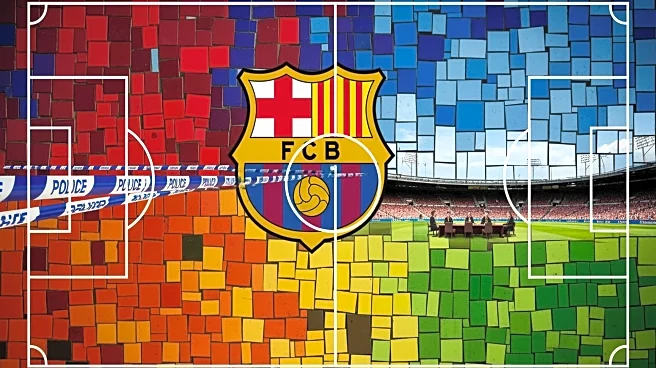What's Happening?
FC Barcelona, founded in 1899 by Joan Gamper, has grown to become one of the most successful football clubs globally. The club's motto, 'Més que un Club,' reflects its cultural and social significance
beyond sports. FC Barcelona is unique in its ownership structure, being one of the few clubs not a limited company, with 144,000 members who elect the club president. The club's history is marked by significant achievements, including winning the Macaya Cup, Pyrenees Cup, and multiple La Liga titles.
Why It's Important?
FC Barcelona's influence extends beyond football, serving as a symbol of Catalan identity and pride. The club's commitment to its cultural roots and democratic values has made it a beacon of hope and unity for its supporters. FC Barcelona's achievements on the field have contributed to its global fan base, making it one of the most popular sports clubs worldwide. The club's ability to attract top talent and maintain a competitive edge in international competitions underscores its importance in the sports industry.
What's Next?
As FC Barcelona continues to navigate the challenges of modern football, including financial pressures and competitive demands, the club's focus on youth development and strategic partnerships will be crucial. The ongoing renovations of the Camp Nou stadium and the club's commitment to social causes, such as its partnership with UNICEF, reflect its dedication to growth and community engagement. The club's future will likely involve balancing its rich heritage with the evolving landscape of global sports.
Beyond the Headlines
FC Barcelona's history is marked by political and cultural shifts, particularly during the Franco regime. The club's stance on Catalan independence and its role in political discourse reflect broader societal issues. The rivalry with Real Madrid, known as 'El Clásico,' is not just a sporting event but a cultural phenomenon that encapsulates historical tensions between Catalonia and the Spanish central government.











